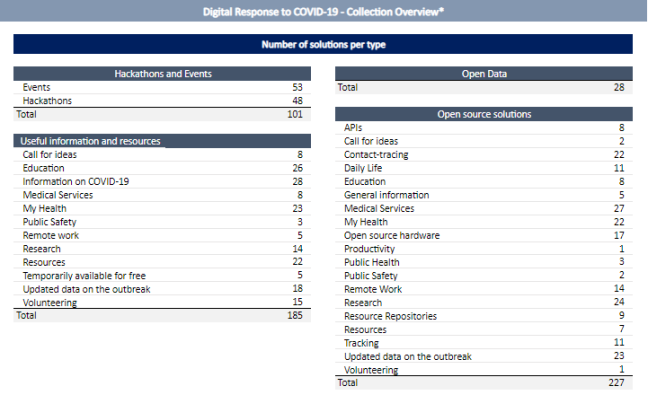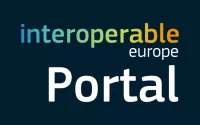
After more than a year since its creation, the Digital Response to COVID-19 collection now has more than 500 listed solutions. To mark this milestone, let's look at the evolution of this unique database.
To cope with the COVID-19 crisis new digital projects and initiatives have been designed or made available for citizens, businesses and public administrations. The Digital Response to COVID-19 collection was created in April 2020 by the European Commission to gather open source software, websites and platforms within a large database that would be useful for all the interested stakeholders. The listed solutions and resources cover a wide range of areas: public health, education, remote work, contact tracing and research among others. The repository also lists digital events and hackathons on the subject of COVID-19 as well as platforms organising citizen collaboration and volunteering activities. The Digital Response to COVID-19 repository has evolved greatly since its creation thanks to the Joinup community’s contributions and the constant addition of new digital solutions.
From the start, this collection has aimed at responding to the urgency of COVID-19 by facilitating citizens’, businesses’ and public administrations' access to various resources. This also includes the ones related to real-time updates on the status and evolution of the pandemic, such as websites or platforms gathering information on COVID-19. The sharing of existing solutions and new initiatives has not only helped to keep the population of Europe and beyond informed, but also has encouraged solidarity among citizens and organisations in overcoming the many challenges brought about by COVID-19 and corresponding containment measures. Solutions linked to the provision of free and open tools to facilitate remote work and the continuity of education in schools are still regularly added, as well as digital initiatives supporting medical research and the production of equipment for medical services such as open source 3D model of face shields, hand sanitizer or even ventilator systems. Over the past year, the resources added to the collection have diversified as the crisis has developed, now counting new initiatives such as national portals to manage vaccination campaigns.

As of today, the Digital Response to COVID-19 collection gathers 540 solutions, categorised by the type of resource and the main topic. Across all categories illustrated above, the most active domains are health and education, as well as digital initiatives presenting updated data on the COVID-19 outbreak. The large number of initiatives reflects the commitment of open source communities, public servants at all levels, researchers, developers, and citizens in contributing to the fight against the crisis. In addition this digital collection can also be used in the broader context of research related to the pandemic: analysis of the use of open source during the crisis, trends on the development of new solutions, level of activity in each domain, involvement of stakeholders as public administrations and much more.
What now?
COVID-19 is still very much present in our daily lives and many new digital responses remain to be deployed and shared with the world. This collection is constantly evolving and we are counting on you to continue to share with us any ongoing initiatives that you are aware of with us via the online form or email at ISA2@ec.europa.eu.
Shared on



